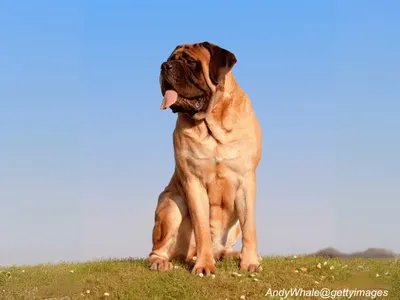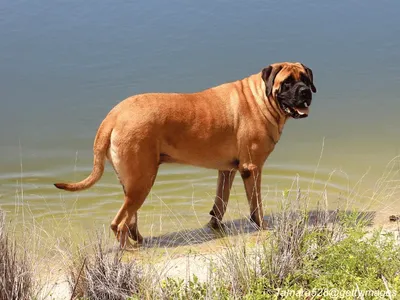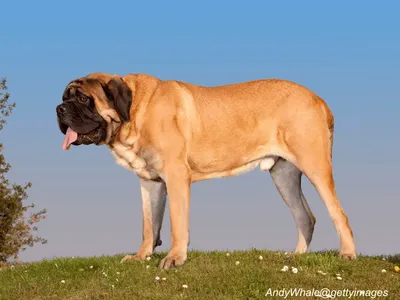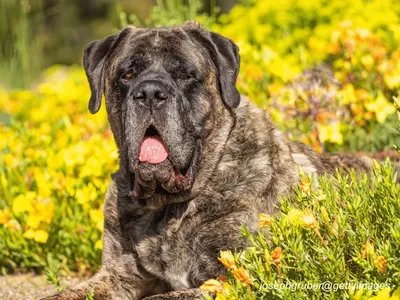Mastiff
AKC & CKC Working Group
Origin & History
The Mastiff is one of the oldest dog breeds, with roots tracing back to ancient civilizations over 5,000 years ago. These massive dogs were used as war dogs by the Romans and as estate guardians in medieval England. The modern Mastiff was developed in England, where they were prized for their strength and used to guard castles and hunt large game.
Today, while still imposing protectors, most Mastiffs serve as gentle family companions, maintaining their calm demeanor and loyalty. Their massive size and noble bearing continue to command respect while their affectionate nature wins hearts.
As one of the heaviest dog breeds, the Mastiff remains a living link to ancient canine history while forming deep bonds with their human families.
Stats:
- Height: 27-33 inches
- Weight: 120-170 | 160-230 lbs
- Coat: Short, straight outer coat with dense undercoat
- Colors: Fawn, apricot, or brindle, with dark mask
- Lifespan: 6-10 years
These guys are 4/5 droolers!
| Traits: | 1 | 2 | 3 | 4 | 5 |
|---|---|---|---|---|---|
| Energy: Low to moderate; needs regular but not strenuous exercise | ✓ | ||||
| Easy To Train: Intelligent but independent; requires patient training | ✓ | ||||
| Grooming: Low maintenance; weekly brushing and occasional baths | ✓ | ||||
| Family Dog: Gentle and devoted to family; excellent with children | ✓ | ||||
| Watchdog: Excellent natural guardian; protective without aggression | ✓ | ||||
| Beginner Friendly: Not recommended for first-time owners due to size | ✓ | ||||
| Prey Drive: Low; generally good with other pets | ✓ | ||||
| Barking: Minimal; typically only when necessary | ✓ | ||||
| Good with other dogs: Early socialization is important | ✓ |
Health Concerns:
- Hip/Elbow Dysplasia: Common joint issues in giant breeds
- Bloat (GDV): Life-threatening stomach torsion
- Cardiomyopathy: Heart muscle disease
- Osteosarcoma: Bone cancer common in large breeds
- Cystinuria: Kidney stone-forming disease
- Ectropion: Droopy eyelids
Please check the Canine Health Information Center (CHIC) and parent breed clubs for health information.
Glossary of general canine health conditions.



